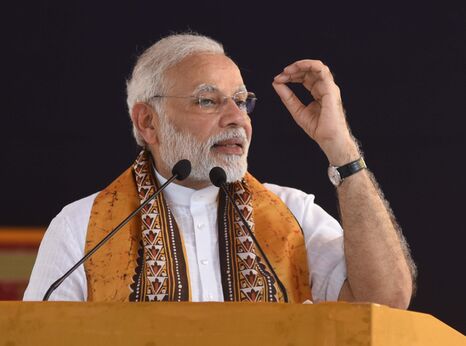Professor terminated for Facebook post

Photo Copyright Credit: NurPhoto via Getty Images
On 10 September 2020, A.K.M. Wahiduzzaman learnt for the first time that he was being dismissed from service after the Bangladesh’s state-run National University issued a press release stating that he was being terminated for posting on Facebook remarks about the country’s Prime Minister Sheikh Hasina and her family. The circular stated that the university’s syndicate took this decision on 2 September on grounds of “negligence of duty”, “misconduct”, “absconding” and “fraud” under the discipline and appeal rules 4 of the Service Rules of National University.
“I was not aware that [the university authorities] framed this allegation against me and I did not get an opportunity to defend myself,” said A.K.M. Wahiduzzaman.
His termination violates the university’s service rules, which require the authorities to ensure his right to defend himself for the allegations under the discipline and appeal rule 8 of the Service Rules. The university’s press release attributes his termination to a Facebook post for which he has been accused under section 57 of Bangladesh’s draconian Information and Communication Technology Act. The authority’s action further violates rule 16 of the discipline and appeals of Service Rules of the National University which stipulates a stay on any penalty of the university if the issue is pending trial at the court.
The university professor could face at least seven years in jail if he is convicted under the law. Its vaguely worded clauses empower the authorities to prosecute people “in the interest of sovereignty, integrity or security of Bangladesh” or if they are deemed to “prejudice the image of the State or person” or “hurt religious belief”.
Currently in self-exile for fear of persecution, A.K.M. Wahiduzzaman told Amnesty International that he has not received any letter from the university to defend himself in either his present or permanent address in Bangladesh.
A.K.M Wahiduzzaman’s termination demonstrates a worrying pattern of repression against teachers in public universities for exercising their right to freedom of expression. On 9 September, Morshed Hasan Khan, a professor of the University of Dhaka, was terminated for writing an opinion piece in 2018 which, according to university authorities, “distorted liberation war history” and “disrespected the father of the nation Sheikh Mujibur Rahman”.
In June 2020, two other public university teachers, Kazi Jahidur Rahman of Rajshahi University and Sirajum Munira of Begum Rokeya University, have been accused under the draconian Digital Security Act for posting criticisms on Facebook about a senior politician of the ruling party Awami League, Mohammad Nasim, who passed away in the same month.
The Digital Security Act, which was introduced in October 2018 as a replacement to the ICT Act, expanded the earlier law into ways that not only curbs people's right to freedom of expression but also empowers the security apparatus to breach into people's right to privacy on digital platforms and social media.